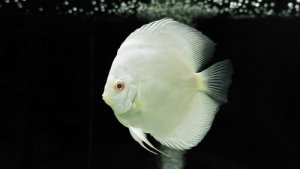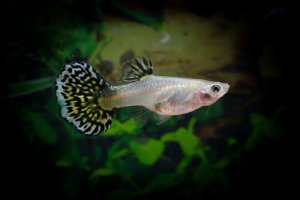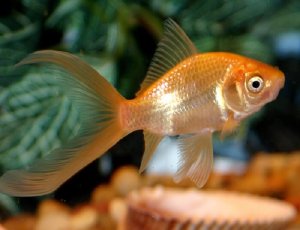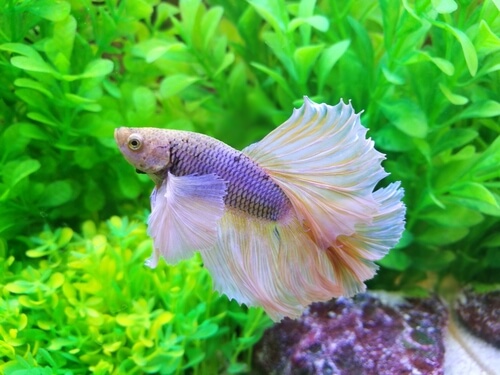
Betta fish are generally quite eager eaters. So when food is dropped into the tank, you will see them swim to the food excitedly every time. If this suddenly changes for some reason, you should know it’s time to investigate immediately.
Many factors could contribute to your betta fish not eating, and many of these can be addressed immediately at home without a veterinarian.
These are a few reasons your better fish may be experiencing a loss in appetite and how to deal with it.
Betta Fish Not Eating: 6 Reasons Why
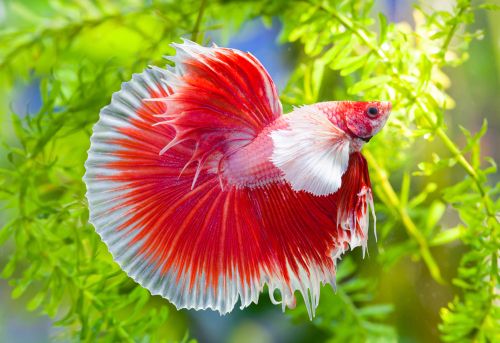
1. Water Quality
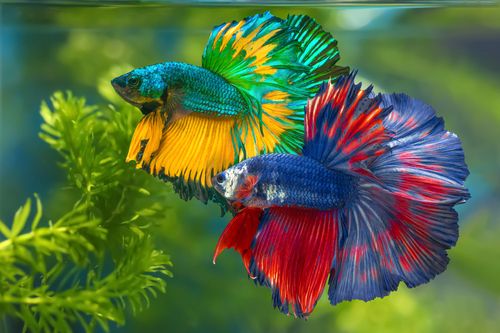
Water quality is a considerably significant reason for betta fish not eating. If your betta is kept in a small tank with lots of tankmates, the tank’s water can easily become filthy. This is due to a large amount of waste. In addition, ammonia and nitrate levels increase, affecting water quality—constant exposure to contaminated water results in stress in betta fish.
Stress in your bettas usually affects the immune system, eventually leading to disease and illness. So when your fish isn’t feeling well, one of the first indications will be a loss of appetite. Regular monitoring of chemical levels with an aquarium test kit will help keep the water quality at an optimum level.
2. Poor Food Quality
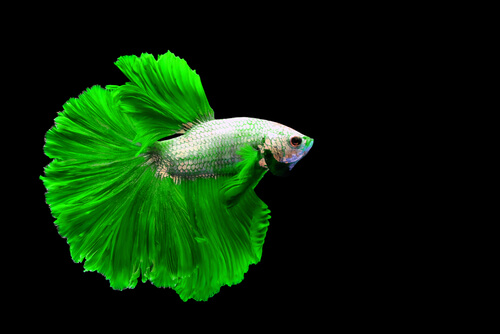
Most fish food found on pet store shelves is made from extremely cheap ingredients. This poorly made food is not nutritious for bettas and could be why they are not eating. Even if you have high-quality food, it is important to note that fish food does get stale. Even the best quality fish food is usually good for six months. Anything beyond this could mean it has lost the majority of its water-soluble vitamin content, including vitamin C.
Not only is this stale food no longer desirable to bettas, but it is also no longer nutritious once it loses its vitamins. Bettas find their food using smell; when fish food is stale, it no longer smells good. Your pet may just be struggling to find the food due to lack of aroma, so they no longer eat like they used to.
Another reason for betta fish not eating is that it may just be bored with the food you are feeding it. Your aquatic friend prefers a varied diet, and feeding it only pellets daily can discourage them from eating. Add some variety to feeding with live, freeze-dried, and frozen foods.
3. Overfeeding
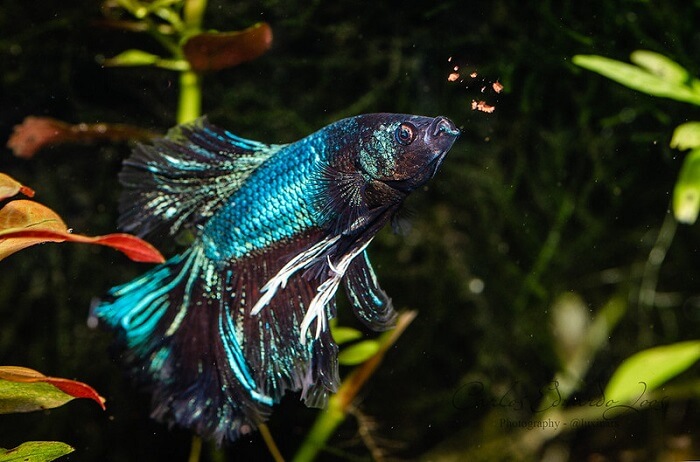
Betta fish don’t need a lot of food to sustain themselves. In fact, they just need about four to five pellets twice a day. Should you feed your fish too much, they will gladly eat all of it. However, they can’t keep up with this much food, which eventually affects their metabolism. This usually leads to your betta getting constipated, having a swollen belly, and possibly swim bladder issues.
When your betta is overfed, you will likely observe that it will stop eating during feeding times. They tend to do this as a form of fasting to digest what they have consumed. If overeating leads them to illness, they will refuse food until they feel better. Continuous overfeeding can be one of the causes of betta fish death.
4. Incorrect Water Temperature
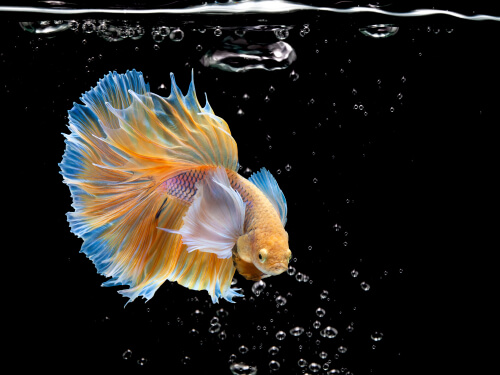
These colorful tropical fish are familiar with warmer temperatures in their natural habits. Betta fish thrive in aquariums with temperatures of 76 to 82 degrees Fahrenheit. Placing your fish in unsuitable temperatures can be detrimental to their health. Cold temperatures slow down their metabolism due to them trying to preserve energy.
Once your betta’s metabolism slows down, it will likely have digestive problems resulting in a distended belly and appetite loss. In addition, the inappropriate temperature can lead to stress in your pet and disease. Finally, your fish can experience thermal shock if the water is kept cold for too long, which can result in your betta’s death.
5. Disease And Illness
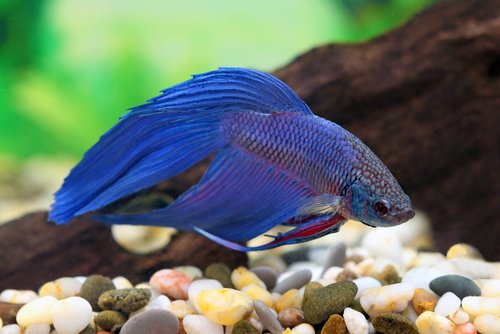
Numerous fish diseases and infections can cause your betta to lose interest in eating. A lack of appetite is a prevalent symptom of a sick fish, which could also signify death. There are many causes of betta fish illness, such as poor water quality, poor diet, stress, overfeeding, and temperature changes.
Though you may give your betta fish the best care possible, you cannot prevent illness and disease. When a betta fish is sick, it loses its appetite. If you can’t find any other reason for your betta not eating, look for indicators of disease or illness. Besides the loss of appetite, your aquatic friend can display other signs of disease, such as loss of color, lethargy, or isolating itself. Try treating infections quickly to avoid the sickness progressing and possibly passing to other tankmates
6. Change Of Environment
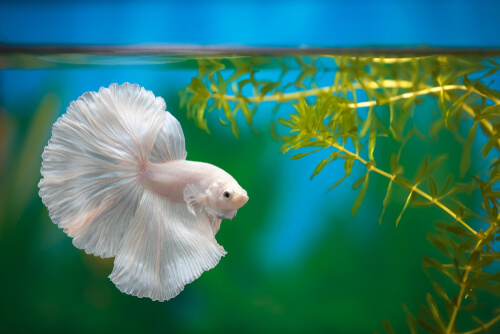
Your betta fish is highly sensitive to any changes in their environment. Changes in water parameters, being placed in a new tank, or adding new tankmates can cause stress. Ammonia spikes in the tank or other chemicals in the water can make them not want to eat. These changes in water parameters are also causes of betta fish illness.
Betta fish may not adapt quickly to physical changes in their environment. They can also become agitated by bright lights, adding new plants or ornaments, or excessive activity. In addition, new tankmates are also a massive contributor to a changing environment. Bettas are territorial fish and do not like competing for food with new fish. This leads to your betta fish not eating.
What Should You Do When Your Betta Fish Is Not Eating?
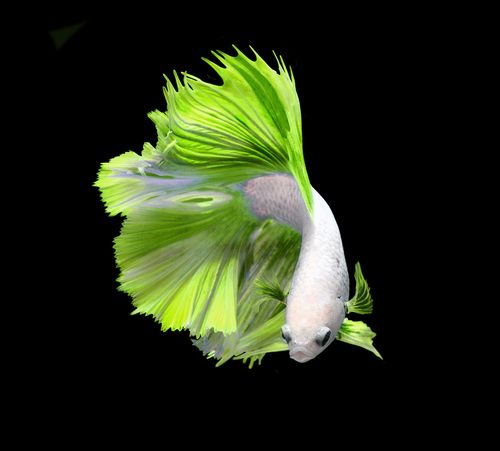
It is pretty standard for betta fish to refuse certain types of food, and sometimes owners may not understand why. Usually, when your betta is not eating, it can be easily fixed. Here are a few ways to get your betta eating again.
1. Inspect The Food You Feed Your Betta
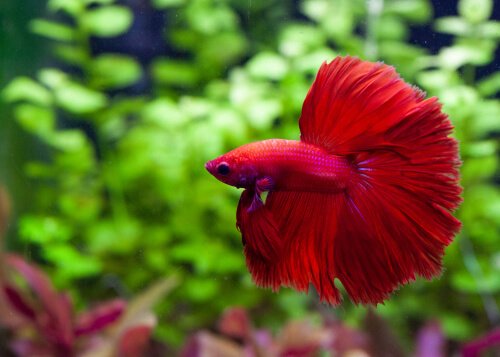
Betta fish are carnivores and eat live organisms rich in protein in the wild. They can be picky eaters, and this can be why your betta fish is not eating. Therefore, it is good to feed your betta fish different foods right from the start. A varied diet of pellet, flake, freeze-dried, frozen food, and live foods will not only keep your fish healthy but will also encourage your fish to accept different foods if another is unavailable.
Also, check if the food is not old or expired. Betta fish will not swim to any food they cannot smell. When trying out new foods with bettas, give them at least a week to adjust to the new meal. They usually protest by not eating it at first but, in most cases, will come around once they adjust to it.
2. Create A Perfectly Heated Environment
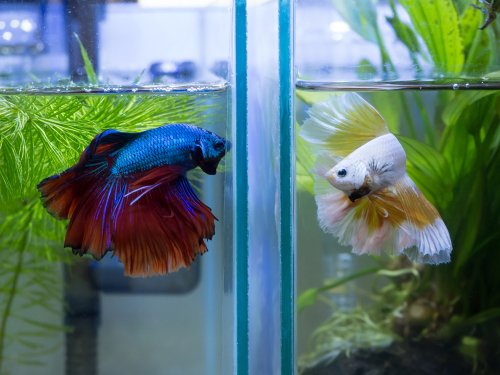
As discussed earlier, betta fish are tropical fish and prefer warmer tanks. Therefore, it is essential that when you get a betta fish, you ensure you have the necessary heating equipment. To avoid temperature fluctuations, purchase an adequately sized heater for your tank as well as a thermometer.
Should you notice that the temperature has dropped, slowly raise it to avoid shocking your fish which is one of the typical causes of betta fish death. In addition, avoid placing your tank in direct sunlight, as this will cause the temperature of your tank to fluctuate continuously.
3. Improve Water Parameters
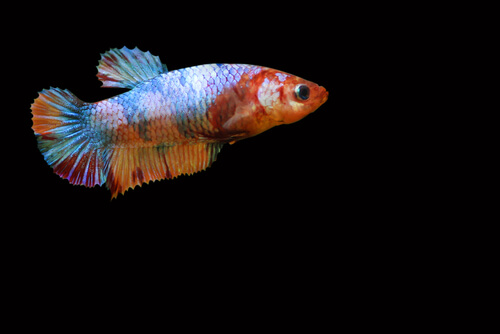
Water filled with toxins is one of the biggest causes of betta fish illness. When bettas are overwhelmed with dirty water, they will not eat. Therefore, it is essential that the water is regularly checked for high levels of ammonia and nitrates using test kits. If the water is heavily contaminated, immediate water change is the best thing to do.
When using tap water, ensure you add a water conditioner to treat the water before adding it to the clean aquarium. Another helpful tip for keeping the tank clean is removing any excess food your fish doesn’t consume. Food that stays at the bottom adds to the increased nitrate levels. Finally, manage the pH levels of your tank religiously, and you will have a happy and healthy betta fish.
4. Ensure The Environment Is Ideal
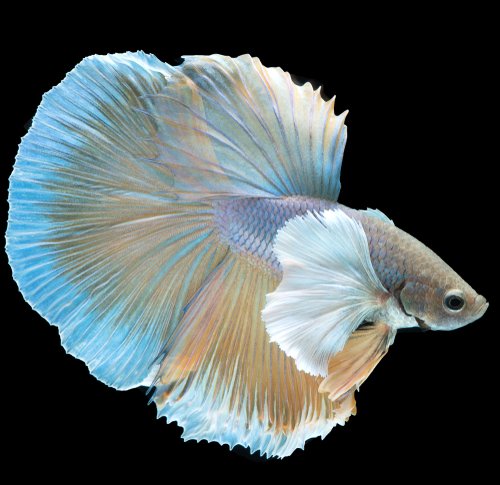
Bettas are not the kind of fish you put in a fishbowl. They require space to swim around as they are fast, excited swimmers. Suppose you’re housing your betta in a tank with other fish. Ensure the tank is big enough for the number of fish in it. Too many fish in a small environment limits the space and leads to water that becomes dirty faster.
Another thing to look out for is if other tankmates are bullying your betta. A hostile environment is a popular reason for betta fish not eating. If this is the cause, remove your fish from this environment. Isolate until it starts eating again and either reintroduce it to the tank or place it in a different tank. In addition, betta fish that are new to a tank may not eat due to the sudden change of environment.
5. Assess Your Betta Fish For Illness Or Disease
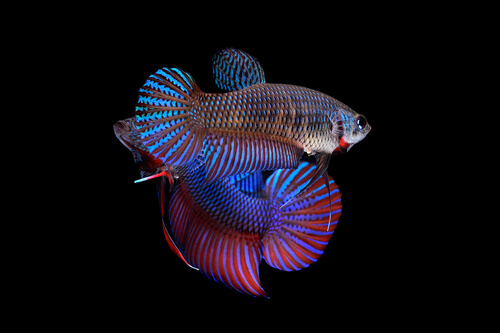
Not eating a typical symptom is bettas when they are ill. Spend time observing your fish for signs of illness or disease. Ensure your fish is moving around like usual and is not lethargic. Check for parasites under scales, redness or bruising on the body, drooping or damaged fins, or signs of bloating.
If you suspect your betta is ill, quarantine the fish and begin treatment. If you see no improvement in your pet even after treatment, seek consultation with a vet. A simple remedy for typical bloating and constipation problems is Epsom salt added to the tank. In addition, if your fish may have swim bladder disease, feed it peas to increase fiber intake.
Bottom Line
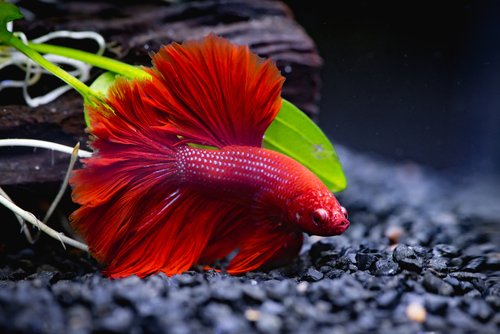
One thing you may need to take into consideration is that betta fish not eating for prolonged periods is a critical issue. If left unattended, it can worsen and is one of the causes of betta fish death.
You will now be able to identify why your betta fish is not eating easily with the information available in this article. Your pet will live a long and healthy life if you keep on top of issues that could affect their health.


